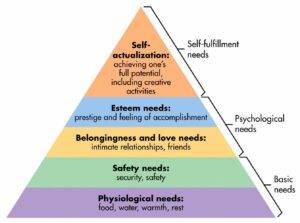Unhealthy fear of God makes us lonely and tired …. get personal with God and rise to a higher level
Perhaps as children growing up, you were taught the fear of God, and you never moved beyond that as an adult. Just as children are afraid of parents disciplining them, they soon grow out of it! Hopefully, the parents also change tactics as the children move through teenage years.
Perhaps a healthy relationship with God could be a reflection of the little boy of 6 or 7 who came to confession and, with a big smile, confessed that he hit his sister!
I hope he stopped smiling about it by the time he reached age 10.
 What’s nice about this is his honesty without fear. Perhaps smiling at God as we confess our sins might be going too far, but the confidence the little boy shows is what is important. The boy has a personal relationship with God – he knows God loves him…
What’s nice about this is his honesty without fear. Perhaps smiling at God as we confess our sins might be going too far, but the confidence the little boy shows is what is important. The boy has a personal relationship with God – he knows God loves him…
The first reading reveals the desire of God (through the prophet), for a renewed relationship with people: one that is personal. We saw, throughout the Exodus story that Moses had a personal relationship with God, but all the other people were too afraid: they told Moses to speak to God for them.
The Incarnation proves to us that the Israelites made a big miscalculation in the desert: they had no reason to be afraid of God: God who brought them out of Egypt (out of slavery).
In many religions the focus is on helping us find God. Perhaps it would be helpful to consider a major difference between Christianity and most other religions: God is looking for us – God is looking for you (thank you Bp Robert Baron): “Because of this questing and self-emptying divine love, we become friends of God, sharers in the communion of the Trinity.”
As Fr Richard Rohr OFM says: the bible is a series of images that God uses to demonstrate God’s presence and action in our lives: ie. opening our eyes to recognise God’s presence.
The first reading also challenges us to let God be God, and not try to become God ourselves. When we do, disaster will follow.
As a parent continues to work with a stubborn child and help them to have a change of heart, so God desires to continue working with us to help us discover God in new way: at a higher level. The sign of God’s love, rather than anger, for people is the last sentence: “since I will forgive their iniquity and never call their sin to mind.”
When we say: “Create a clean heart in me, O God,” we are expressing our desire for a renewed relationship, a renewed understanding of God in our lives: at a higher level.
Unfortunately, as the 2nd Reading points out, the way to understand God requires a little suffering on our side: not because God wants us to suffer but because we need to lose some false ideas, and let go of hatred for others, and forgive the past.
Although the words of Jesus can be taken as a need for suffering, the opposite is possible. We just need to trust that if we follow Christ then our lives will be more complete.
What does it mean to follow Christ: to help others, to empower others.
Most of us – more or less – are busy empowering ourselves, so we get tired and lonely. A notable exception are good parents who are busy empowering their children:
although they get exhausted, they never grow tired.
Finally, Jesus admits his fear: but chooses to trust God the Father rather than taking the easy way out and hiding from, or running away from, what needs to be done. A personal relationship with God gives us courage to empower others, and so reap the rewards of a fruitful tree at harvest time: joy, peace & my life was worthwhile.
As we struggle through Lent to put meaning on my sacrifices, prayers, etc, perhaps we can all refocus check everything we do against the question: will this empower someone else in my community, or only me?
I pray for blessings of peace upon each of you: to know that you are loved much by God.
By Gerard Conlan, OMI


